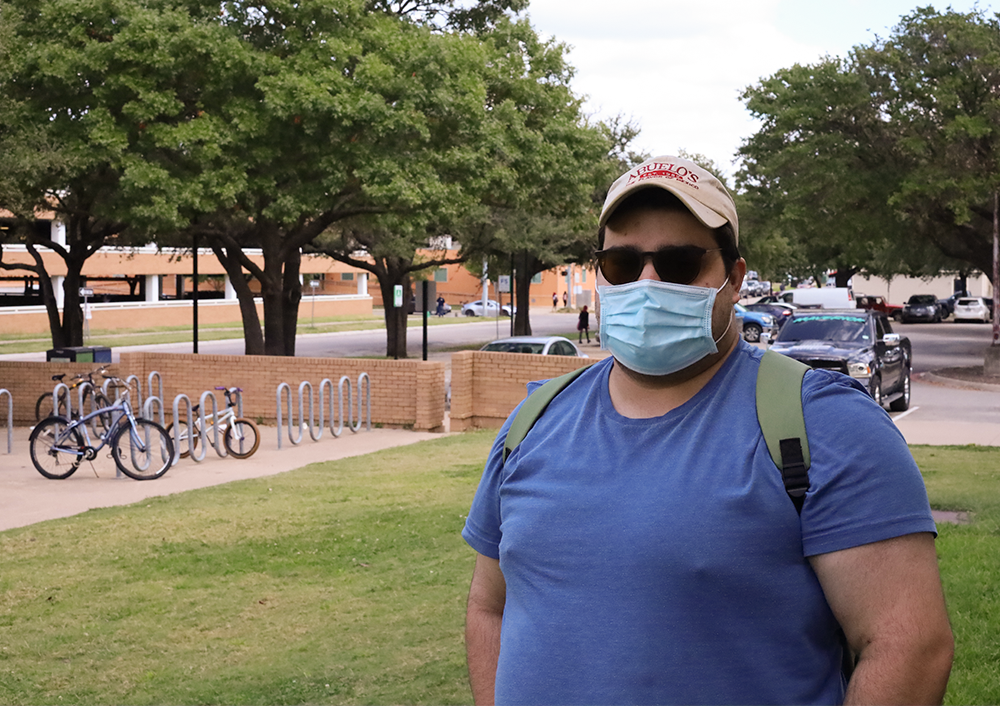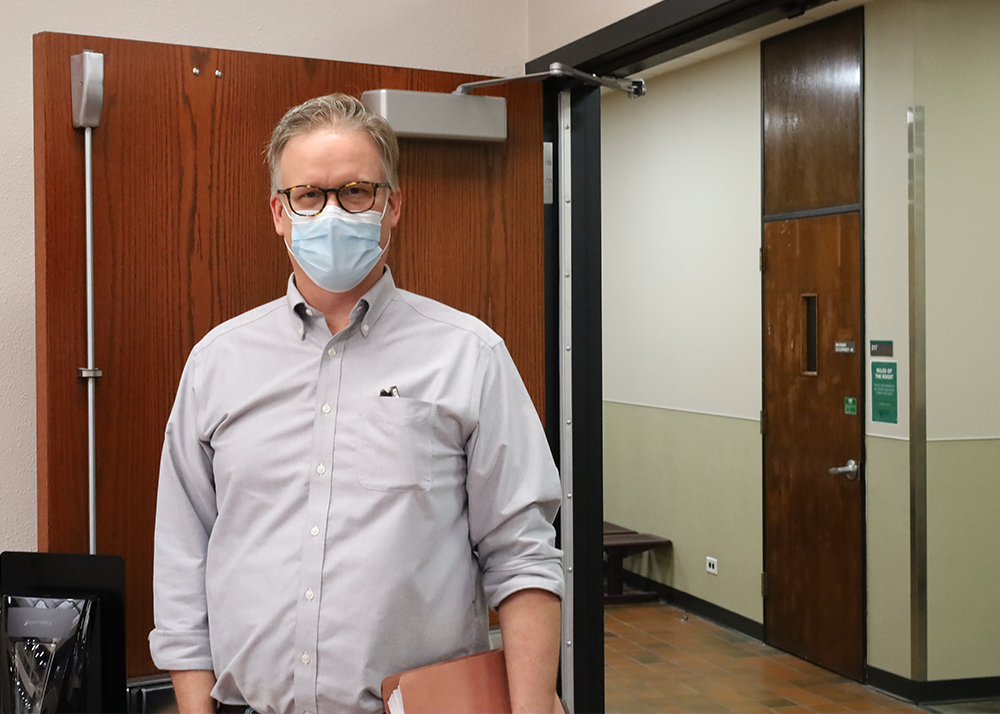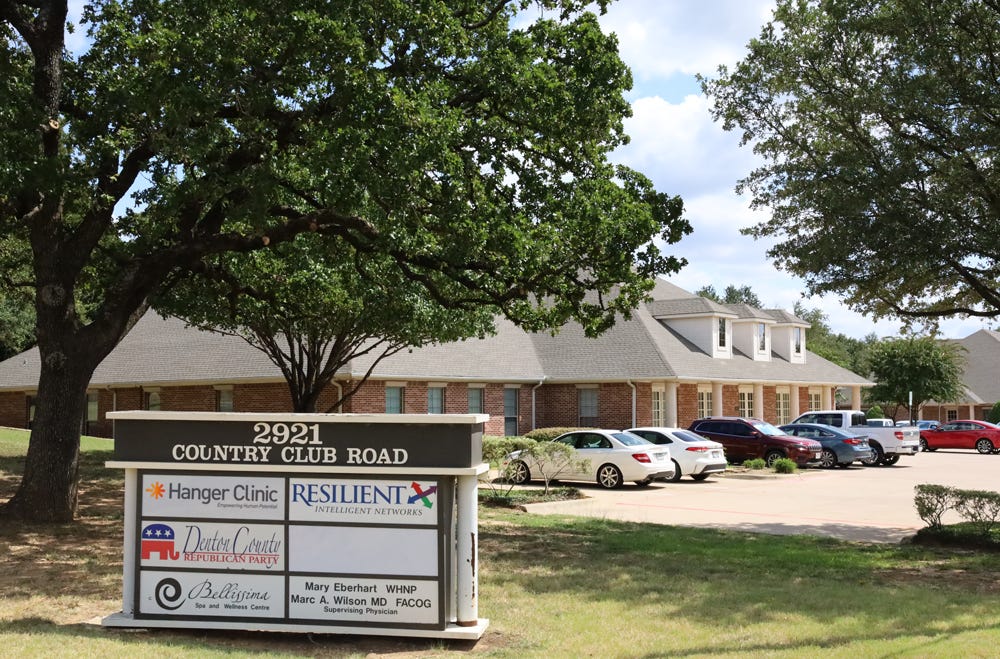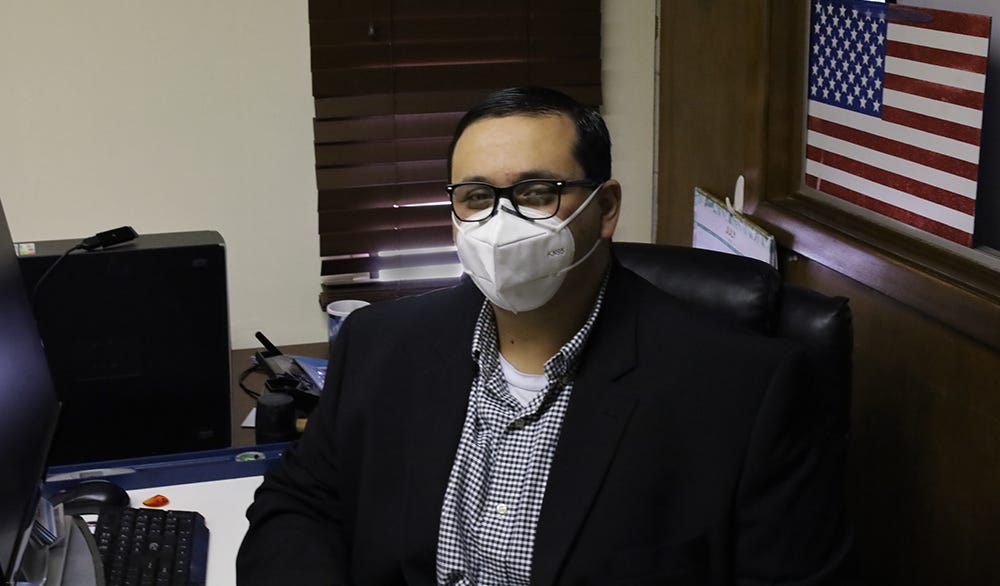SB 1 reels in early voting, which will impact Denton County’s voter turnout in future elections
While Denton County Republican officials believe new voting laws will maintain election authenticity, Democratic opponents say the laws do little more than suppress key demographic groups.
Phillip Abramo, a student at the University of North Texas, believes “open democracy” should make it easier for citizens to vote, not limit access by scaling back early voting measures the way Senate Bill 1 does.
“This bill is pretty disgusting in my opinion,” Abramo said. “I feel like everyone should have as many opportunities to vote in however way they can.”
During the 2020 Election, Denton County saw its highest voter turnout since 1992, with 73.72 percent of registered voters casting ballots. Of that voting base, a whopping 91.93 percent were early voters –a drastic surge nearly double any other year dating back to 1988. Although the COVID-19 pandemic likely played a key role in that figure, early voting nevertheless remains popular with college-aged voters who will now be impacted by SB1’s broader restrictions.
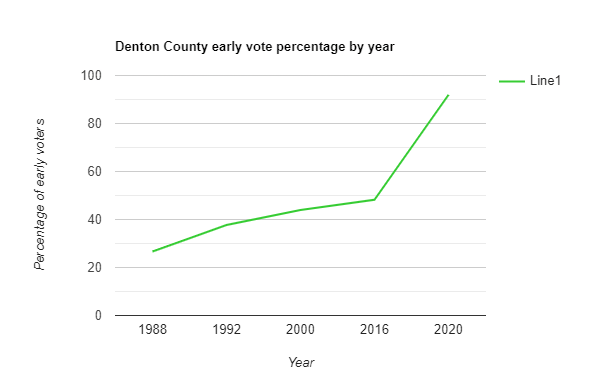
As a result of SB1, mail-in voters will now be required to take greater personal responsibility by directly requesting their ballots beforehand. Other early voters will find that previously afforded benefits, such as 24-hour voting and drive-thru voting, will no longer be available. For individuals with busy or odd schedules, this could negatively impact future turnout.
Abramo isn’t the only one who believes the new voting laws do more to suppress votes than ensure election authenticity. Denton County Vice Chairman Jordan Villarreal was direct in his criticism of the new laws.
“I think it’s fairly obvious what SB1 is,” Villarreal said. “I think it’s obvious this is a voter suppression bill meant to tamper with our elections going forward.”
Denton County Democratic Primary Elections Administrator Emily Meisner elaborated on Villarreal’s statement, detailing the impact on students.
“College students, voters with disabilities, and the elderly will now face more difficulties when voting by mail,” Meisner said. “Texas already had very restrictive laws about voting by mail and now voting by mail will become even more burdensome. When voters fill out their mail ballot they will be required to recall information supplied as far back as 10 months ago on their application to vote by mail.”
Although the new voting laws will limit the ease and accessibility with which voters can cast their ballots, historian Todd Moye, a professor at the University of North Texas, believes the bill could have been far worse.
“It doesn’t do anything to make it easier to register to vote or to vote, which has Texas headed in the wrong direction, but it only nibbles at the edges of voter suppression,” Moye said. “We should be making it easier to vote—with online registration, voting by mail, and dozens of other reforms that other states have successfully implemented—but at least this law doesn’t radically change the status quo the way that SB8, the abortion law, does.”
Republicans, meanwhile, contend the banning of 24-hour and drive-thru early voting is intended to make elections more uniform, including for college students.
“The specifications that they put in place for early voting will take away a lot of the confusion that previously existed with the different hours and different places at different polling places,” said Wylie, a Denton County Republican official. “They would run some specific on-campus early voting centers at different times than they would other voting centers, so having that standardized probably helps students make sure their votes get counted as well.”
Harris County has been at the root of much of the voting laws debate, drawing considerable ire from Republican lawmakers due to its implementation of 24-hour and drive-thru voting during the 2020 Election. The county has a population of more than 4.7 million people, making it the most populous county in the state and the third-most populous county in the nation. Aided by its expanded early voting measures, the predominantly Hispanic county broke records for turnout in 2020.
“The people who voted overnight, like 3 AM to 5 AM or whatever, the vast majority of them were minorities who worked late, lower income,” Abramo said. “These people typically don’t have the opportunities to vote easily, and they for once had that opportunity to vote easily and now it’s being taken away from them.”
Despite the controversial new laws, Democratic Representative Michelle Beckley did secure a key victory, granting the Denton County Commissioner’s Court the power to approve voting centers moving forward. This would allow voters to go to any voting center in Denton County on Election Day rather than a specified precinct, making it uniform with existing early voting procedures.
“It’s those small steps that do make it a bit more palpable,” Villarreal said. “Obviously, it’s still not a bill I would have voted for or [that] I would have supported, but thanks to the efforts of our Democrats… we have been able to get some progressive reforms through that bill.”
The Commissioners’ Court will ultimately decide the fate of Beckley’s provision, but early indications suggest approval is likely despite each member of the Court, as well as County Judge Andy Eads, being a fiscal conservative.
“As this past special legislative session and the overall aim of SB 1 indicates, partisanship is always going to play a role in our election processes, regardless of how often we would like to pretend or believe it doesn't,” Democratic Representative Michelle Beckley said of the process. “The interesting thing about my provision is that it has bipartisan support and equally benefits all voters, regardless of party affiliation. It doesn't guarantee admission to the program for applicable counties, simply the ability for County Election officials who reside in counties that use mixed voting systems (paper and electronic ballots) to apply.”
However, while Beckley’s proposal might increase accessibility for voters in Denton County, redistricting based on the latest Census data will likely alter the playing field further yet, Moye says.
“The legislature will next take up redistricting, and I do expect that the maps they come up with in the special session will use gerrymandering to suppress minority votes.”




